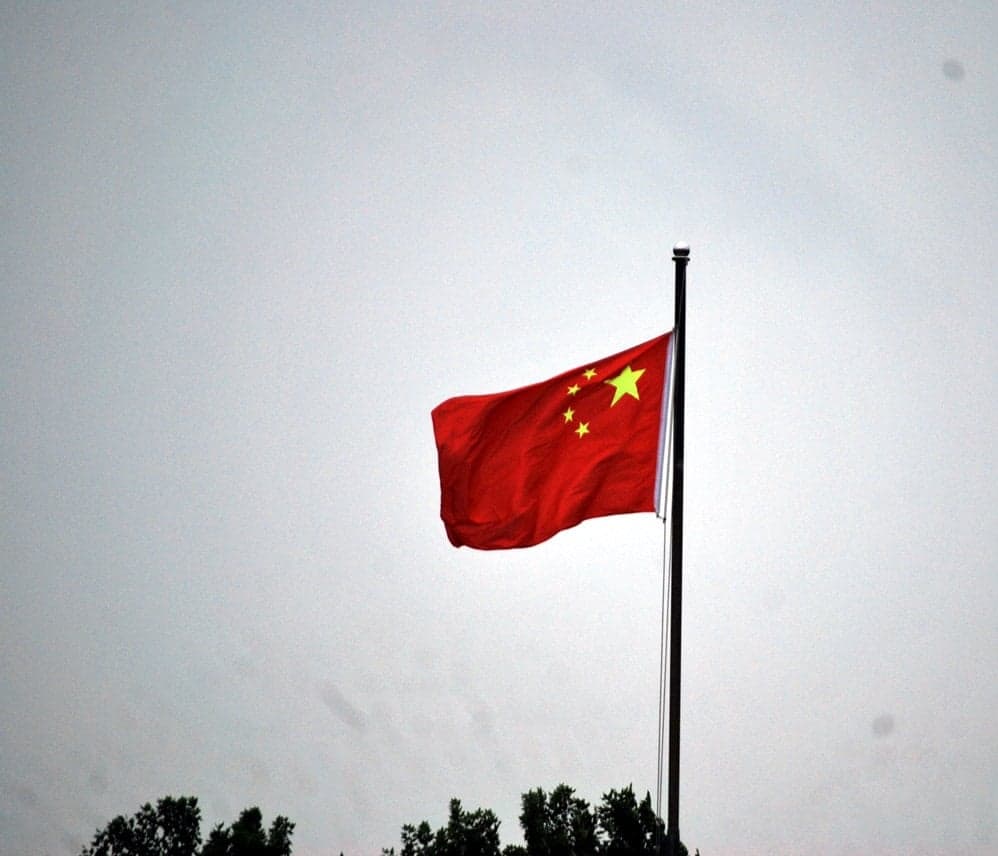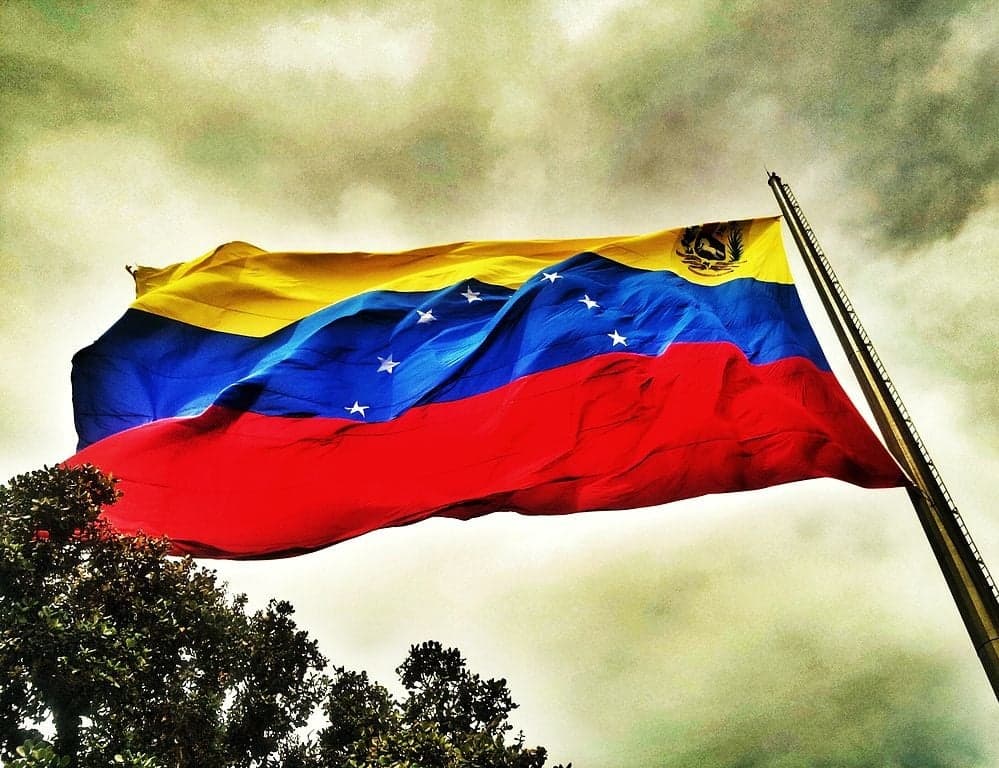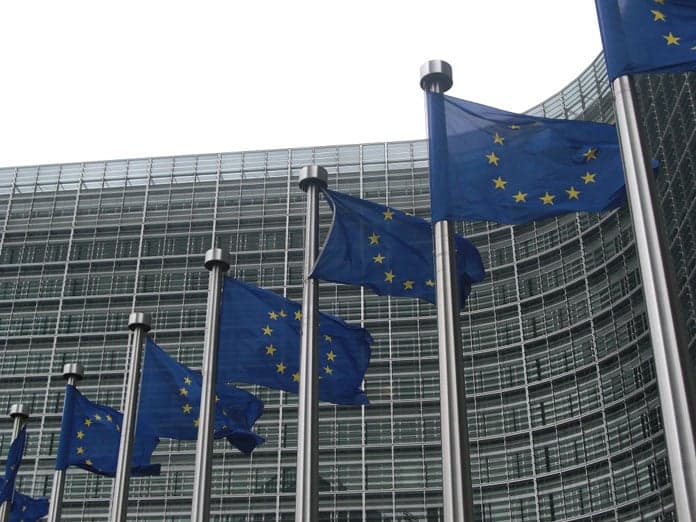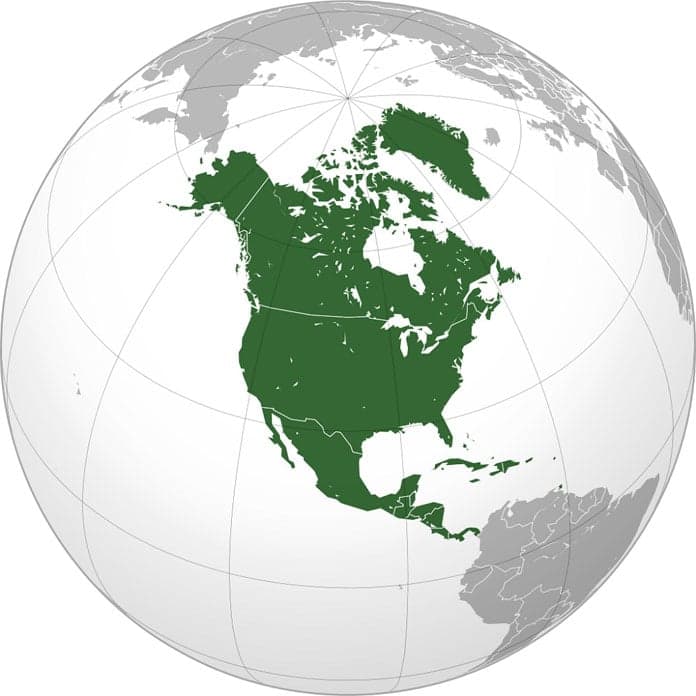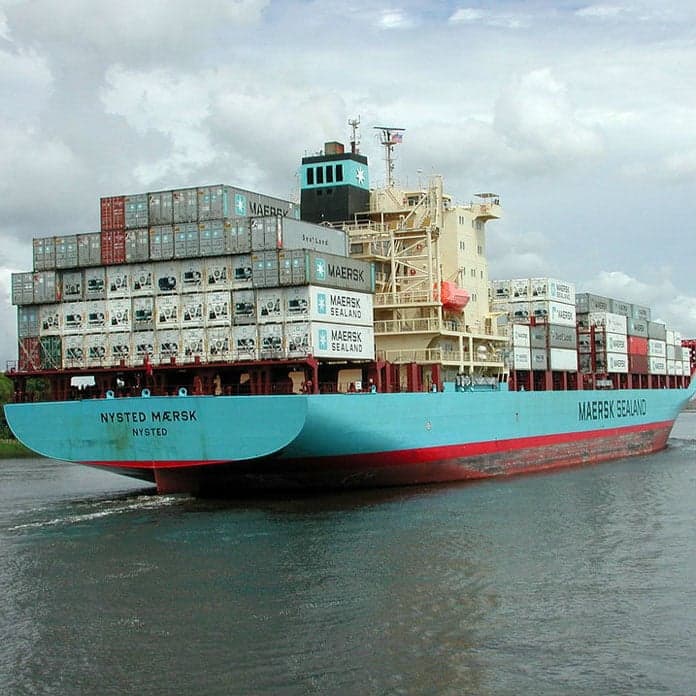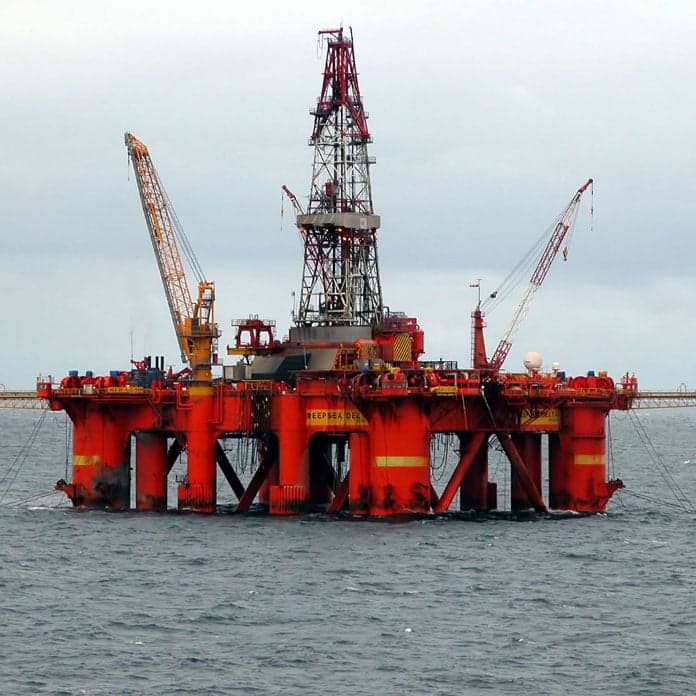On August 18, United States Trade Representative Robert Lighthizer announced a trade probe of China's intellectual property practices. According to the Chicago Tribune, the probe is meant to verify complaints that "Beijing improperly requires foreign companies to hand over technology in exchange for market access." The United States government claims that these allegations amount to serious intellectual property and technology theft, meriting a thorough investigation that may take up to a year. The probe was invoked by triggering Section 301 of the Trade of Act of 1974, which allows the president to levy tariffs and other such restrictions on countries accused of "unfair trade practices." If the allegations against China are true, it is estimated that the value of intellectual property loss may amount to as high as $600 billion.
globalEDGE Blog - By Author: Nitish Pahwa
Publish Date:
Venezuela's international standing has suffered in the wake of its controversial presidential election and constitutional assembly. Amidst allegations of vote manipulation and crackdowns on protests and opposition, Venezuela's electoral process and ensuing government scandals have faced condemnation from several international leaders. Foreign ministers of fellow Mercosur countries voted to indefinitely suspend Venezuela from the trade bloc. The United States levied sanctions on numerous Venezuelan officials, including the country's president, preventing them from doing business in or traveling to the U.S. Other nations have refused to recognize the election results. The international response will likely impact the already-suffering Venezuelan economy, which has declined sharply over the past few years.
Publish Date:
As industry processes around the world become more digitized, businesses find themselves increasingly prone to vicious cyberattacks. In May, a ransomware attack named WannaCry infected software in over 150 countries, upsetting procedures in the technology, finance, healthcare, transportation, manufacturing, and communications industries. Although a security patch for WannaCry was issued and installed in several systems, it wasn't enough to prevent a separate ransomware attack called Petya, which spread in June and affected thousands of machines in over 65 countries. Virtual epidemics such as these, which have become quite frequent over the past year, can prove devastating to international business, causing technological destruction, operation disruption, and widespread theft of money and intellectual property.
Publish Date:
globalEDGE has added a Best Countries Index to our Country Indices pages. The index, compiled using data from the U.S. News and World Report, assigns a ranking and score to 80 separate countries, based on how global perceptions on a variety of attributes could potentially increase trade, travel, and investment in each country. The information also takes into account how these perceptions could potentially affect the national economy of each country. The factors considered are qualitative instead of quantitative, giving varying amounts of weight to these subrankings: adventure, citizenship, cultural influence, entrepreneurship, heritage, movers, open for business, power, and quality of life. Check out our new indices today.
Publish Date:
The globalEDGE team is pleased to announce new updates to our industry insight pages. In the introduction sections, we have added detailed visual breakdowns for each industry and have revised Primary Demand Drivers and Profitability Drivers with the most current information available. The related blog posts displayed at the bottom of the page now include include pictures for more visually-appealing previews. The corporations sections now more prominently display our special pie chart which shows which countries are the dominant players in each industry. Check out our updated industry pages today!
Publish Date:
On June 27, antitrust officials from the European Union levied a fine of 2.42 billion euros ($2.7 billion) on Google, citing market interference and obstruction of competition. The ruling targets Google Shopping, the e-commerce service that displays related products for sale on top of results pages for search terms. Margrethe Vestager, Competition Commissioner for the EU, alleged that Google's promotion of its Shopping results provides an unfair advantage to the service, impeding fair competition from rival e-retailers and violating EU antitrust rules. The decision, coming at the end of a seven-year investigation by the European Commission, makes for the largest fine ever imposed by the EU upon an individual company for antitrust infractions.
Publish Date:
On June 5, the United Arab Emirates, Saudi Arabia, Egypt, Bahrain, Yemen, the Maldives, and Libya all cut diplomatic ties with Qatar, citing the country's alleged financial ties to extremist groups. Although Qatar has denied the allegations, more countries are following suit—Senegal and Mauritania likewise broke ties on June 7, and the Philippines, which has been dealing with extremist militants in Marawi City, has temporarily forbidden workers from travelling to Qatar. The immediate economic shockwaves following the announcement have been immense—Qatar's stock market has plunged by 7.27%, costs of food have shot up, oil prices have dropped, the riyal currency has sharply depreciated, transport from and in to the country has been disrupted, and entire trade and import routes have been eliminated altogether. Although Qatar is one of the richest countries in the world, it will have to make monumental adjustments to its economic structure to adjust to these rifts.
Publish Date:
On May 19, United States President Donald Trump embarked on his first series of foreign trips for the current presidential term. His first stop was Riyadh, the capital of Saudi Arabia, where he met with King Salman bin Abdulaziz, Crown Prince Muhammad bin Nayef, and other members of the Saudi royal family. During the two-day visit, President Trump and King Salman signed arm deals worth an immediate total of $110 billion, with additional promises of further investment over the next decade that will eventually equate to $350 billion. On a wider scale, the arms deals are part of a larger series of potential deals between Saudi Arabia and the U.S, often involving specific corporations from each nation. Collectively, they encompass the energy, defense, technology, chemicals, and mining sectors, signifying initiatives from the Saudi government to diversify its business from oil exports (part of the Saudi Vision 2030 plan established in spring 2016) and establish new trade relations within other industries within the U.S. Following the signings, global aerospace and defense stocks rebounded in value.
Publish Date:
In the last blog of the leisure industry series, we take a look at the changing music industry.
In previous blog posts, we have analyzed the state of the global music industry, noting the dominance of streaming services as the default method for popular music consumption. As rates from digital and physical music sales remain in decline, revenues from streaming services have risen sharply: worldwide streaming revenues hit a new high of $5.4 billion in 2016. Major services based in various countries—Spotify from Sweden, TIDAL from the Norwegian company Aspiro, Apple Music from the United States, Deezer from France—have seen massive increases in their paid subscriptions, with further growth projected for the next few years. Countries with large music markets, like China, India, and Mexico, have provided large markets of subscribers and listeners. The effects of streaming have played a substantial role in the development of the global music industry—by the end of last year, the industry had accrued revenues of $16.1 billion, reaching its highest rate of growth (5.9%) in 15 years.
Publish Date:
On April 26, United States President Donald Trump announced plans to "re-negotiate" the terms of the North American Free Trade Agreement (NAFTA) with Canada and Mexico. As related in a White House press release, the administration had intended to completely withdraw the U.S. from the trade deal, but was dissuaded from doing following conversations with Canadian Prime Minister Justin Trudeau and Mexican President Peña Nieto. At present, NAFTA stands in its current form, although the U.S. has explicitly stated its desire for major changes to the trade deal. The situation is predictive of a potentially volatile future for NAFTA and trade relations between the U.S., Canada, and Mexico.
Publish Date:
Part four of our transport manufacturing blog series examines the role emerging markets play in the industry.
Emerging markets are proving to be key areas for future growth in the transport manufacturing industry. The 2017 Emerging Markets Index from Agility and Transport Intelligence shows continued strength in logistics, infrastructure, and investment potential for large emerging markets, including the United Arab Emirates, Malaysia, and Saudi Arabia. According to the index, countries such as India and Kazakhstan significantly strengthened their business capacity over the past year, warranting further attention from international logistics executives. In addition, China, India, and Brazil have become a hotspot for automotive and aircraft sales. Despite frequently cited concerns in dealing with emerging markets—government corruption, tax laws, and customs—more corporations within the transport manufacturing industry are hoping to expand their business in these countries.
Publish Date:
Just last month, the United Kingdom Parliament triggered Article 50 of the Lisbon Treaty, officially commencing the necessary processes for leaving the European Union. The entire operation is expected to take two years, and the U.K. hopes to set up the structure for a positive international investment climate during that time. As part of this pursuit, Prime Minister Theresa May began a multiple-day visit to Saudi Arabia on April 4 to discuss trade deals between the two nations. Saudi Arabia and the U.K. have been prolific trading partners for years; the talks were intended not only to maintain this relationship, but also to discuss future developments in defense, security, and economic reform. May's visit has been criticized by various international leaders, who have cited Saudi Arabia's record on women's rights as well as the country's involvement in the current Yemen conflict. Worries abound both outside and within the U.K. government that the nation may be overlooking human rights concerns in favor of favorable trade deals.
Publish Date:
On March 1, over 1.5 million shopkeepers in the southern Indian state of Tamil Nadu started a mass boycott of Coca-Cola and Pepsi products, pulling the beverages off their shelves and replacing them with domestic soft drink brands. All of the involved vendors are members of the Tamil Nadu Traders Association, a retailers organization that directed the boycott toward United States-based soft drink brands. The Association cited two primary reasons for the boycott: PepsiCo and The Coca-Cola Company's exorbitant use of the area's groundwater, and the continued "meddling" by American organizations in Indian traditions.
Publish Date:
Over the past few decades, the global agriculture industry has been forced to adjust to sweeping societal changes, including booming population growth, increasing urbanization, decreasing rural populations, and a steep decline in the number of farmers. The industry has been able to shift in certain ways in order to face these challenges—technological incorporation, increased production efficiency, and a focus on mass industrial output. However, the escalating symptoms of climate change are impacting agriculture on a much more devastating scale. Crop harvesting, fertilization, irrigation, and food production are all hit by the effects of climate change, affecting the living standards of populations the world over.
Publish Date:
The 2015 Joint Comprehensive Plan of Action (JCPOA), known as the Iran nuclear deal, was a global agreement that curtailed multinational sanctions on Iran with the promise that Iran would cut back on its uranium enrichment. Several nations have doubted Iran's full commitment to the deal, especially with news of the recent missile test; nonetheless, the JCPOA has held firm thus far. Helped by the sanctions relief, Iran has now taken a large step in revitalizing its position within the global marketplace. The country has started building 12 new oil refineries, hoping to increase its overall output to at least 4 billion barrels a day by the end of March. Unaffected by the OPEC supply cuts negotiated last November, Iran hopes to massively expand its lagging energy industry, a sector that was particularly hit hard by pre-deal sanctions.
Publish Date:
As global business practices become increasingly digitized, industry sectors are forced to constantly adjust to their transforming infrastructures. This is especially felt within the hospitality industry, where technological mainstays are driving business on both a domestic and an international scale. Technology has allowed for further integration and optimization of industry practices, accelerating overall efficiency. Outreach efforts have also expanded, attracting more consumers to the industry and continually changing their personal engagements with procedures for lodging and travel. Here is a closer look at the various ways technology is shaping the future of hospitality.
Publish Date:
The Korea Fair Trade Commission, a corporate regulator based in South Korea, declared that it would fine mobile chipmaker Qualcomm Inc. a hefty $853 million over the company’s purported abuse of antitrust laws. The announcement comes at the end of the Commission's three-year investigation of Qualcomm and constitutes the highest such fine charged to an individual United States-based company. The Commission concluded that Qualcomm broke antitrust laws by refusing patent access to competing chipmakers and by withholding necessary phone chips in order to pressure mobile manufacturers into strict licensing agreements. In addition, the Commission claimed that Qualcomm used patents from other chipmakers without fair compensation. Qualcomm has stated they will appeal this decision to the Seoul High Court, professing that their licensing practices follow decades-old industry standards.
Publish Date:
Approximately two years ago, United States President Barack Obama and Cuban President Raul Castro proclaimed the official reestablishment of diplomatic relations between their nations. After decades of embittered disputes, economic sanctions, and general hostility, the two countries have come ever closer to bridging their differences. In the time since, Cuba and the United States reopened embassies on their respective mainlands and oversaw several other achievements: the expansion of aerial and naval transport between the two countries, the increase of agricultural sales to Cuba, and the augmentation of telecommunications services in Cuba. In addition, plenty of agreements involving business opportunities within the countries' private sectors are on the table, with the potential to take effect soon. Many of these efforts are taken up by the Cuba Working Group, a group of Congress lawmakers dedicated to legislating such advances. For the most part, the newfound ties between Cuba and the United States have been received positively on an international scale. The developments been praised domestically as well, as officials from both countries see the new diplomacy as a gradual establishment of democracy in Cuba. However, recent events have cast a shade of uncertainty, including the results of the United States presidential election and the death of former Cuban leader Fidel Castro. Now, citizens and leaders are pondering what comes next for the relationship between Cuba and the United States.
Publish Date:
In this installment of the globalEDGE Mega Trends in Business series, we take a look at how global businesses are responding to climate change. Day by day, governments the world over are increasing collaborative efforts against climate change by solidifying various international deals and agreements. With this, regulatory pressure is mounting on multinational companies to ensure that their practices meet environmentally-friendly standards. Several firms are answering the call and taking active stands against the threat of climate change, framing it as a business issue as well as an environmental one. Some corporations are forming coalitions across countries to reach a common consensus on necessary action. Others are shifting their business and investment practices in order to adapt to government legislation. Whatever the process, it is clear that climate change will be an unavoidable factor in future global business practices.
Publish Date:
On December 4, Italian Prime Minister Matteo Renzi mandated a referendum for a major constitutional reform. The goal was remove certain powers from the Senate—the upper house of the national legislature—so as to establish sole approval power in the lower house and expedite the legislative process. A powerful movement against the referendum was led by populist coalition Five Star Movement, reflective of a global trend of increased populism in national governments over the world. The results mirrored this: 60% of referendum voters chose to reject the measure, causing Renzi to meet with Italian President Sergio Mattarella the following day and offer his resignation. However, the referendum results have not just shaken Renzi's political career; Italy's entire future now lays in the balance, with several potential crises at hand. Questions have risen over probable political changes, the future of Italy's place in the European Union, and the effects on the banking system.
Publish Date:
East Asia is home to three of the biggest economic powerhouses in the world: China, Japan, and South Korea. Thus, the well-being of the global economy often depends on the region's pecuniary health. Central banks already hold the utmost power in this regard; yet, in recent times, each nation's bank has led endeavors to consolidate further economic control. The effects of these measures, along with last week's global market shakeups, have paved a path of economic uncertainty. Here is a look at recent developments in East Asian central banks.
Publish Date:
Valeant Pharmaceuticals International Inc., a corporation based in Quebec, is currently in talks to sell Salix Pharmaceuticals Ltd., a company that manufactures gastrointestinal drugs. Valeant originally acquired Salix in March 2015 for $14.5 billion. The purchase was part of a growth strategy of buying pharmaceutical businesses with reputable products and cutting their research costs to maximize profits. However, Valeant lost much stock value over the past year due to unethical business activities, including price hikes, unreliable accounting, and secret collusion. Recently, the company undertook major efforts to change its leadership, settle its legal suits, pay off its debts, and re-establish growth. Selling Salix could be instrumental to these plans; just this week, news of the potential sale increased Valeant's stock by 34%. While prospective clients have been mostly kept anonymous, Japan's Takeda Phamaceutical Co. Ltd. has expressed public interest.
Publish Date:
In a blog post for Cisco, EMEA & Russia marketing director Dr. Christine Bailey explained the omnipresence of digital marketing in the current business landscape: "we’re no longer doing ‘Digital’ Marketing, we’re simply marketing in a digital world." In other words, the appellation 'digital marketing' has become unnecessary; the world is so thoroughly digitized that all corporate marketing actions must align with digital spaces, not just run parallel to them. To be a successful global business in the 21st century, competent utilization of digital platforms is essential. This means not only a complete understanding of analysis and content strategy principles, but awareness of these concepts as they pertain to countries the world over.
Publish Date:
Two of the world's most valuable technology companies, Facebook and Alphabet (by means of its subsidiary Google), are working with TE Subsea Communications (TE SubCom) and Pacific Light Data Communication (PLDC, a subsidiary of China Soft Power Technology) to construct the world's fastest trans-Pacific submarine cable. The 12,800 kilometer (8,000 miles) submarine cable will enable a speed of 120 Terabits per second and connect the United States and China by way of two major cities: Los Angeles and Hong Kong (where PLDC is based). The cable, known as the Pacific Light Cable Network (PLCN), will utilize fiber-optic technology to create the fastest possible telecommunication channel, covering twice the speed of the current-fastest undersea cable. The goal of the PLCN is to increase bandwidth and reduce connection delays in the Asia-Pacific region. According to Google, the cable should be built and functioning by 2018.
Publish Date:
On Wednesday, OPEC reached an agreement that will cut its output of oil for the first time in eight years. The current rate of production is 33.24 million barrels per day; the new aim is 32.5 million barrels per day. The decision came to fruition at a two-day OPEC meeting in Algeria. However, it is not yet an official deal. Specific details have not been released yet, and decisions regarding individual countries' output will not be discussed until late November. Plus, there are several more related proposals from OPEC affiliates that warrant discussion. If an official deal is eventually reached and put into effect, it will undoubtedly raise oil prices (which have been cripplingly low over the past year) and help combat the global oversupply of crude oil.
Publish Date:
In the age of information, the mind-boggling amount of data available at our fingertips can seem daunting. Yet, handled in an efficient manner, it can also be immensely useful. Big Data—referring to the use of nontraditional analytics to examine vast amounts of data—has become an increasingly important part of the business landscape. Over the past few years, several prominent corporations have invested in Big Data analytics and are incorporating them into their business strategies—UPS ostensibly spends $1 billion a year on Big Data analysis strategies. Specifically, many are looking at Big Data as a way to further optimize logistics and increase efficiency of commerce. Those who currently utilize Big Data analysis find it essential, warning that other companies who do not adapt to the technology may find themselves left behind.
Publish Date:
Since March 2014, the European Union has continuously levied various forms economic sanctions against Russia. Initial injunctions were imposed in response to Russia's forced annexation of Crimea and the consequential violence that ensued in Ukraine. These measures included asset freezes and travel restrictions on certain prominent officials, bans on imported goods, investment, and tourism services to and from Crimea, and restrictions on economic cooperation. Russia retaliated in August 2014 with a food embargo on all other nations that joined in sanctioning Russia, including the United States. Since the introductory sanctions, both sides have held firm in their restrictions and have often taken measures to extend them. The EU is the latest to do this, having recently extended their asset freeze and travel ban policies.
Publish Date:
Austria's foreign minister, Sebastian Kurz, has threatened to oppose any attempts by Turkey to join the European Union. Kurz claimed he will use his position in the EU foreign ministers' council to vote against further negotiation chapters with Turkey. His announcement was made Sunday, following a recommendation by Chancellor Christian Kern to completely terminate said negotiations. Several other Austrian government members have echoed their sentiments, citing the recent coup, the respective purges, and Turkish president Recep Tayyip Erdogan's powerful rule. While recent events have tensed Turkey's relationship with the EU, not all nations are ready to give up negotiations just yet.
Publish Date:
The Philippines Commission on Human Rights (CHR) has sent a 65-page complaint to about 47 different energy and mining giants, accusing them of contributing to climate change and thus violating the fundamental rights of Filipino citizens. Grievances listed include violation of the rights to "life, food, water, sanitation, adequate housing, and to self determination." The document demands that the corporations respond within 45 days with formal plans to either eliminate or lessen their carbon footprints. Major companies listed in the dispatch include Shell, BP, Chevron, ExxonMobil, and BHP Billiton. Both human rights and environmental organizations are calling this a "landmark case."
Publish Date:
On July 11, Canadian Prime Minister Justin Trudeau, Ukrainian President Petro Poroshenko, and Ukrainian Prime Minister Volodymyr Groysman together signed the Canada-Ukraine Free Trade Agreement (CUFTA). The agreement, signed in Kiev, is meant to further improve market access between the two countries, settle trade conditions, create jobs, and cement their status as allies. The Canadian government has been a fervent supporter of Ukraine ever since the nation's first clashes with Russia, which left Ukraine in war-torn, economically faltering conditions. Talks for CUFTA between the two countries had been going for months before final negotiations wrapped up last year. Now, the confirmation of CUFTA signifies Canada's continued support of Ukraine in the face of its struggles.
Publish Date:
On Wednesday, United States President Barack Obama, Canadian Prime Minister Justin Trudeau, and Mexican President Enrique Peña Nieto will meet in Ottawa for the annual North American Leaders' Summit. The meeting, commonly referred to as the Three Amigos Summit, has gathered almost every year since 2005 to discuss strategic cooperation and important economic issues. This year's meeting in particular will prove to be of high significance. The primary objective of the 2016 Summit is to develop clean power plans for each country in the continued combat against climate change. However, recent political developments may cast a shadow over this year's talks.
Publish Date:
On Sunday, NASA issued a press release announcing they had just signed an agreement with the United Arab Emirates. The agreement signifies cooperation between NASA and the UAE Space Agency in aeronautics research, space exploration, and the peaceful use and habitation of outer space. Other objectives covered by the agreement include collaboration in Earth and space science research, the establishment of educational programs, and outreach to relate the global benefits of space travel. Possible future cooperative projects include the joint use of certain airspace technologies, ground-based research facilities, and antennas. Above all, the agreement seeks to strengthen the diplomatic and economic relationships between the United States and the United Arab Emirates.
Publish Date:
On May 26, the price of the bitcoin began to surge, hitting a value of $467.50. Throughout the weekend, the currency continued its dramatic trajectory, spiking at $570 before settling around $530. This amounts to a sudden increase of 21% in the midst of a consistent, if low, period for the currency. While these values are far below bitcoin's one-time peak of $1,151, they are the highest prices the digital currency has reached since 2014. That same year marked a heavy blow for the bitcoin, bottoming it out at low rates that remained in force over the past year. Now, investors are indicating promise in the currency once again: Over the weekend, daily global transactions equated to $134,056,000, with over 15 million bitcoins in supply.
Publish Date:
On Tuesday, President Barack Obama announced that the United States would be easing some of its economic sanctions on Burma. Under new provisions, seven Burmese companies and three state-run banks will be allowed to engage in business with American corporations. The announcement shortly followed the seating of Burma's first democratically elected government in decades, led by the opposition party of revolutionary Aung San Suu Kyi. Obama cited several other developments in Burma that led to this decision: the freeing of several political prisoners, the discharge of child soldiers from the Burmese military, and improved labor standards. The lifting of these particular sanctions is meant to reward Burma for taking the steps toward a more democratic society.
Publish Date:
In a legally-binding agreement reached in last years' COP21 conference, over 195 nations pledged to reduce carbon emissions from 2020 onward. The ultimate goal of the conference was to adapt measures that would keep global temperatures from rising 1.5 to 2 degrees Celsius. The passing of this agreement--the first of its kind--appears indicative of the current worldview of climate change. Most world leaders are now unified in the idea that climate change is an increasingly urgent global concern. As a result, the pressure to utilize renewable energy sources has never been higher. Such resources, including hyrdo-electric power, wind turbines, and solar cells, are growing in both popularity and efficiency. Now, the goal is to deviate totally from fossil fuels, both in daily energy use and in international business.
Publish Date:
Christine Lagarde, the head of the International Monetary Fund (IMF), gave a speech concerning the global economy last Tuesday in Frankfurt, Germany. The speech covered several facets of international business and economics, including free trade, political risks to worldwide economies, income inequality, and recent policy actions. Above all, Lagarde emphasized the overall state of the global economy, claiming that the current pace of economic recovery and growth is much too slow. Lagarde warned that unless more is done to kickstart economic growth, the global economy will fall behind. Her speech precedes, and perhaps sets the tone for, the IMF and World Bank spring meetings, set to take place in Washington D.C.
Publish Date:
Since 2007, a construction project has been underway for a third set of locks for the Panama Canal. Undertaken by the GUPC, the completion of locks was delayed for years due to construction problems and contractual issues. However, it looks as though the project is nearing fulfillment. Earlier this month, the consortium behind the expansion announced they were ready to enter the trial phase for the expanded waterway. In a series of over 2,000 investigations, the GUPC plans to test the control systems and electric power that operate the new locks in the Pacific and Caribbean sections of the canal. After this phase, the plan is to run a set of navigation tests during the month of May. If all tests are successful, an expanded Panama Canal could become a reality in the second half of the year.
Publish Date:
On Tuesday, Iran launched a large number of ballistic missiles from silos all over the country. According to reports, the missiles can cover distances ranging from 190 to 1,242 miles. Reports from a local news agency reported that the missiles were launched as part of a supposed military exercise. An official statement from The Revolutionary Guards, a division of Iran's Armed Forces affiliated with the Islamic Revolution, declared that the missiles were launched to showcase Iran's "deterrent power" and "all-out readiness to confront threats". The United States has reacted unfavorably to the news. Just two months ago, the U.S. had imposed sanctions on Iran in reaction to missile tests run by the country last October, meant to disrupt further activity. Now, additional sanctions against Iran may be on the discussion table.
Publish Date:
February was one of the best months for U.S. auto sales in recent years. Due to Presidents' Day deals, leap day transactions, and delayed demand from hazardous winter weather, overall sales from major automotive companies have far surpassed industry projections. The high numbers show promise for automotive sales in the U.S, with several analysts saying 2016 could be another record year for the industry. Investors were worried that 2015's prolific sales were to be the industry's peak; now many of them are changing their tune, expecting automotive prosperity to continue well into next year. It is keenly expected that companies based in foreign countries, especially Japan, will be playing a major role in the increased demand and consumption of automotive products in the U.S.
Publish Date:
If you are looking to learn more about the ASEAN Economic Community, look no further than globalEDGE. On our website's ASEAN page, you can find information about member countries, financial and trade statistics, and the history of the trade bloc. In addition, we also have a plethora of resources on ASEAN, including pages about the ASEAN Economic Community. Check out our ASEAN and AEC resources here!
Publish Date:
Art sales reached an incredible peak over the past few years. Billionaires and other wealthy art enthusiasts around the world have taken joy in paying exorbitant prices for pieces by both well-known and up-and-coming artists. Many of these pieces are fed into personal collections, some of which are put on display. The art collecting habit, popular among the global affluent, has driven prices of popular art to the hundreds of millions. Big name international auctioneers have thrived and the industry has reached unprecedented levels of prosperity. However, 2015 saw a decrease in reported sales for the first time in six years, causing many to believe the art boom is starting to decline.
Publish Date:
China's recent economic activity has set the entire world on edge. In 2015, the country reported a growth rate of 6.9%, its lowest in a quarter century. This has been reflected in the state of the country's major industries, especially in automotives and mining. China is still one of the world's superior mining nations, but several problems have erupted as growth continues to slip. Natural resources are depleting, top minerals and metals are experiencing production decline, and international projects are being abandoned. This has affected the industry on an global scale, considering many countries trading in metals are largely dependent on China. The country appears to hold on to its number one spot with further projects and investments, perhaps in the hopes the industry will give it a much-needed boost.
Publish Date:
Relations between Russia and Turkey have been strained ever since a Russian Sukhoi Su-24M bomber was downed by a Turkish F-16 fighter jet over the border between Turkey and Syria in late November. Turkey claimed the shooting was done because the bomber was violating Turkish airspace. Turkey also made a statement professing their awareness of the presence of Russian warplanes in the Syrian area, leading Russia to believe that the strike was a premeditated attack. In retaliation, Vladimir Putin signed a series of economic sanctions against Ankara on November 28. Now, Russia is discussing passing additional sanctions against Turkey.
Publish Date:
Alibaba Group Holding Company is a Chinese e-commerce corporation that works to connect online businesses and marketplaces all over the world. The company is the largest e-commerce operation in China and has made its founder and chairman, Jack Ma, his country's richest man. Alibaba has often drawn comparisons to Amazon due to each company's respective dominance in local and global markets. A big part of Amazon's success has been due to its expansion from online retail services, and Alibaba now appears to be following a similar route.
Publish Date:
From November 30 to December 11, leaders and negotiators from 195 countries are meeting in Paris to reach a deal on global carbon emissions and rising global temperatures. The meeting is officially known as the United Nations Paris Climate Change Conference and the 21st session of the Conference of the Parties, or COP21 for short. The Conference of the Parties is an annual U.N.-supervised global meeting that has taken place since 1995 and is dedicated to reducing the effects of climate change. COP21 is one of the largest conferences organized yet, meeting with the goal of creating the first legally binding global climate agreement. Past climate change agreements, including the Kyoto Protocol and the Copenhagen Accord, either focused mainly on curbing carbon emissions or introduced measures that did not reach unanimous global approval. The nations meeting in COP21 aim to change this with a new agreement.
Publish Date:
If you are looking to prepare for the Certified Global Business Professional Credential, find educational resources for your classroom, or learn more about all aspects of international business, look no further than globalEDGE's Online Course Modules. Our website contains over fifty modules, each with information on various issues in international business. Topics covered include country culture, exporting, microfinance, and doing business in different regions of the world, such as Africa, China, and the European Union. Along with knowledge on the selected material, our modules include interactive slides, quizzes, and relevant case studies. Our exporting modules, a product of a cooperation with the U.S. Commercial Service, also contain downloadable podcasts.
Publish Date:
Just this week, Nissan Motor Co. announced its quarterly earnings, which revealed that its profits had experienced a 37 percent surge during the first half of the fiscal year. Because of this revenue spike, Nissan's net income through March is now projected to reach $4.44 billion, an unprecedented level in the company's history. Nissan is now experiencing its fastest sales growth in over ten years, citing rising demand in the United States and Western Europe as a significant part of its success. This is an important record for the popular manufacturing company, but it may not last too much longer.
Publish Date:
Ever since the 2008 financial crisis, emerging markets have received less investment from other countries. This is due to falling demand for the commodities that have traditionally powered these countries' exports. In addition to this, flows to emerging markets decreased even further in 2014 due to unease in the markets. Now it is looking even grimmer. By the end of 2015, capital inflows to emerging markets are projected to reach $548 billion, while emerging markets are only expected to have about $540 billion in outflows. These numbers are troubling, for if the gap between capital inflows and outflows continues to decrease, net capital flows to emerging markets may go negative for the first time in decades.
Publish Date:
As part of the normalization process that began a little less than a year ago, the United States has taken additional steps in renewing full relations between itself and Cuba. On September 18th, the U.S. government announced revisions to its sanctions against Cuba that would make business and travel between two countries much easier. On top of this, President Obama may be working to end the embargo that the United States has on Cuba. Insistence on removing the embargo comes from personal requests by Cuban President Raul Castro, Pope Francis, and the United Nations, who condemned the embargo. Obama may aid Cuba in ending the embargo to the U.N.'s wishes, an unprecedented move by a world leader. While most are in favor of continuing to open trade between the U.S. and Cuba, completely removing the embargo proves to be a controversial subject.
Publish Date:
On Monday, August 24th, Chinese stock markets fell by 8.5%, creating a major crash in the Shanghai Composite. Investors have called this day China's 'Black Monday' because of the dent it has left in China's business as well as the consequences it has caused for the global economy. The crash was caused by many factors including the staggering amount of people investing in the Chinese stock market, suffering businesses with high stocks and prices, margin calls, and the sudden selling of stocks by these same investors. The stock market crash has had damaging effects on billionaires and global markets. Although some markets seem to be in recovery, the crash could be seen as a sign of a bigger problem in China.
Publish Date:
Greece's woes have been a well-publicized global topic over the past year. Between its staggering debt, its default on these debts, and discussion of its exile from the European Union, Greece has struggled with pulling its way through an web of economic troubles. There is, however, a glint of optimism for the country. On August 14th, Eurozone finance ministers approved Greece for a new bailout package, its third such deal in five years. The package was agreed upon after a half-year's worth of negotiations between Greece's government, the Eurozone, and the IMF. While not all Eurozone countries have yet given approval, the bailout is considered a relief for a situation that threatened to break the Eurozone apart. It is yet to be seen how it will affect Greece and the rest of the Eurozone in the long run.
Publish Date:
The Trans-Pacific Partnership (TPP) is a trade agreement between twelve Pacific Rim countries with the goal of lowering or eliminating trade barriers, including tariffs, quotas, and other restrictions, between the nations involved. Major nations such as Canada, Japan, the United States, and Mexico all have stakes in the partnership. The proposal has undergone negotiations for several years, with plans to finalize the agreement going back to 2012. The passage of the TPP has been of high priority for the Obama Administration. However, there have been several controversies with the agreement that have prevented it from coming to fruition. In its latest round of negotiations, which ended on July 31, the partnership was delayed once again, citing disagreements over certain trade industries, potential human rights violations, and corporate interests. This time, it looks to be a bitter blow for the TPP.
Publish Date:
Tonight at some point before 8:00 PM Eastern Time, the world will experience what is known as a "leap second". There will be a minute of time that is 61 seconds long. Today, June 30, will be approximately one second longer than usual, and official atomic timekeeping will factor in this second before turning over to July 1. This strange concept has a fascinating history and explanation; however, it is also a cause of concern for market traders around the world, who fear that this extra second will disrupt global operations.
Publish Date:
Throughout the past ten years, the music industry has increasingly embraced digital media formats for music distribution. The adaptability of business models to the digital format, however, has been volatile at best. When methods of distribution for music were primarily physical—vinyls, tapes, and CDs—record labels had more control over their product and how it would be consumed by the masses. As the music industry becomes more decentralized and more streaming services are popping up, a power struggle is occurring between record and indie labels, recording artists, and consumers over the value of music in this day and age.
Publish Date:
Earlier this year, Comcast Corporation was planning on taking over Time Warner Cable Inc., a deal that was met with harsh reactions from the public as well as many media companies and organizations. The fear was that a merger between two of the biggest media conglomerates in the United States would significantly reduce competition in the telecommunications industry. After the Department of Justice threatened an antitrust lawsuit against the companies, the merger plan was canceled about a month ago. Now Charter Communications Inc. has taken Comcast's place, having proposed a $56.7 billion plan for the takeover of Time Warner Cable. This time, the deal seems to be different and has gathered more support. Here is a closer look at the potential benefits and ramifications of this proposal.
Publish Date:
On Monday, Narendra Modi, the prime minister of India, went to South Korea for a two-day visit with its president, Park Geun-hye. On that day, the duo signed seven agreements dealing with various economic issues, discussed investments and political issues, and improved their bilateral relations. The two countries have vastly improved their relationship, elevating their relationship to a "Special Strategic Partnership". By improving both political and economic ties between the countries and opening up special business deals, Modi's visit is one that could prove vastly beneficial to both countries and potentially the global economy.
Publish Date:
Ever since the financial crisis of 2008, many large central banks have used quantitative easing in order to help stimulate their respective economies. Quantitative easing is the act of buying financial assets from lower level banks, thus increasing the price of the assets and increasing reserves in the economy. This has remained a common practice in central banks, and these banks have even increased the rates of easing since this year. However, economists are uncertain of how much easing has actually helped the global economy, and are wondering if it is time for a change in monetary policy practices.
Publish Date:
Since last year, prices of oil have decreased by over fifty percent and have festered at some of their lowest rates in many years. This has occurred due to several factors, including decreasing global demand for oil and an increasing supply. Lately, however, demand for crude oil is on the rise and overall output has been growing in major oil-producing nations such as Saudi Arabia, Iraq, and Libya. It is yet to be seen if these events will continue as an industry trend for this year, but a potential change in oil prices could certainly occur.
Publish Date:
Last Friday, the United Nations announced that the world may be facing a major shortage of water supplies in about fifteen years. Available water for consumption and other uses may be reduced by 40% as a result of factors such as urbanization, high living standards, heavy industry usage, and booming population growth. The report calls for drastic measures to keep freshwater as a readily available resource for the future, as some regions of the world are already starting to run out of water and aquifers are becoming exploited beyond a sustainable level. This will mean cutting down on heavy water consumption and use, a move which will affect people and industries worldwide.
Publish Date:
On Wednesday, the European Union Commission approved plans to combine the energy markets of its twenty-eight member countries into a unified energy market. The Commission stated that the EU Energy Union would provide many benefits to the countries of the EU, lessening their dependence on energy supplies from foreign countries and boosting their economic power significantly. The ambitious plan is facing some criticism, and has yet to be approved by the European Parliament as well as the EU's member countries, but it certainly has the potential for major influence on European economics.
Publish Date:
McKinsey & Company, an international consulting firm, has released a report containing information on the debt of over 47 different countries. The numbers show that total global debt has increased by $57 trillion since the 2007 financial crisis, making current global debt a record high of $199 trillion. Debt is now 286 percent of global economic output, a 17 percent increase from what it was during the financial crisis. These figures expose weaknesses and trends present in all markets and countries, and also imply that many of these economies might be headed on rocky roads toward bankruptcy or severe crisis, affecting the economy on a global level. Here is a closer look.
Publish Date:
The extremely low oil prices that have characterized the energy industry for the past few months are making waves all around the world. In some countries, low prices have been seen as a benefit; in others, not so much. A major consequence has arisen that will affect all nations regardless of economic status: oil corporation mergers and takeovers. Historically, it has generally been the case that when there are low prices in the energy industry, mergers and acquisitions occur between bigger and smaller firms. Several plants and companies that originally profited immensely off of high oil prices, will now either have to severely change business strategies or be forced to relinquish control to more powerful firms in the industry.
Publish Date:
Just last week, Russia's currency, the ruble, fell sharply in value by almost 20%. This drastic event sent Russia's central banks into chaos as they consistently increased interest rates to try to rebalance the ruble. On Thursday, Putin declared that the ruble has reached its highest value in three weeks and is stable again. Unfortunately, economists warn that the fall and subsequent recovery of the ruble is not going to pass without adverse effects, both for Russia and for the global economy. Russia, which has already had a rough year economically, now is forced to withstand the threat of an impending recession. Other regions of the world will also have to be wary of the impact of the ruble dilemma.
Publish Date:
Several new economic developments have occurred in the United States during this last quarter. The recent drop in gas prices, credited to the drop in global oil prices led by OPEC, is one of these noteworthy developments. This has led to increased spending in the U.S, especially in the retail and automotive industries. There have also been significant increases in employment, as well as a strengthening in the value of the dollar. While these all seem like boons to the United States, some of these factors have the potential to not only hurt the U.S. economy, but economies around the world as well. As a result, economists are warning the U.S. to take caution, especially with its fragile economy now leaving the period of quantitative easing by the Federal Reserve.
Publish Date:
On a meeting in Berlin on Thursday, thirty wealthy nations pledged to donate $9.3 billion towards the Green Climate Fund, a sum dedicated toward reducing emissions and helping to protect developing and poorer nations from the stark effects of climate change. This is a little short of the $10 billion goal that was supposed to be reached, but it is a big step forward in investing to prepare help prepare for the effects of climate change. Environmental officials everywhere have highly praised the fund, and more countries are to offer donations by the end of the year.
Publish Date:
In an earlier blog post, I discussed how the restructuring of China's economy by its government had the potential to affect other nations and impact the global economy. In this post, I will be discussing the economic and political struggles it is currently facing and how these issues are influencing Western nations. China is currently having trouble with its slowing economy as well as a tough anti-corruption campaign that deals with government figures and local business. Currently, the government is actively seeking solutions to these problems.
Publish Date:
A new collection of resources has come to globalEDGE: the Global Best Buying Practices Video Library. This is a collection of videos, set in several different countries, that showcases case studies in the world of international retail and global buying practices. The videos are divided into four different categories: assortment planning, pricing, product promotion, and sourcing. Check out the library today!
Publish Date:
Argentina has been facing many economic and financial troubles these past few months. Future predictions are now showing a poor outlook for its economy, as the country is struggling with high inflation, a major decline in the value of the peso against the U.S. dollar, and more trouble involving disputes with hedge fund and holdout creditors. For a country that has had a history of economic troubles in this century, none of these things spell anything good for Argentina's future, and it only seems to be getting worse from here.
Publish Date:
As the world's second biggest economy, China is a mainstay for several countries who depend on it for their international services. Most of these tend to be neighboring countries on the same continent, but China's influence is not limited to Asia alone. With major business also being done in Australia and North America, China has proved that its reach is global. As a result, the impact of its attempt to rebalance its markets and economy will not stay within its borders, and will most likely affect economic policies everywhere.
Publish Date:
It's no secret that the Eurozone is an economically struggling region of the world, and although it has been recovering from the blow caused by its economic crisis, it has been doing so very feebly. Now, the recovery has suddenly stopped; in the second quarter of the year, the Eurozone was recorded as growing 0%. While economists say that the overall Eurozone economy should not sink into a recession yet again, it does not seem like the recovery will pick up its pace anytime soon. The future of its countries economies all depends on what actions the European Central Bank takes.
Publish Date:
Just last week, the World Trade Organization seemed like it was going to pass the Trade Facilitation Agreement (TFA) when India decided not to sign the deal, citing concerns over food security. The TFA was the WTO's first landmark trade agreement, designed to ease and liberalize trade between its over 160 member countries by changing tariff and duty systems, as well as cutting down on red tape. These trade revolutions, it claimed, would have created over 20 million jobs and added $1 trillion in trade output. The idea for the deal was born during the WTO's conference in Indonesia last winter, and the deadline for agreement and signing the deal by its member countries was on July 31 of this year. With India backing out of the deal, however, it seems as though the TFA has been doomed to oblivion....or has it?
Publish Date:
On July 18, the seventh annual Global Innovation Index (GII) was released at the B20 Australia Summit in Sydney. This year, the report's theme dealt with the Human Factor in Innovation, referring to the role that people play in the overall innovative success of different countries. While Switzerland, the United Kingdom, and Sweden topped the list, a significant change was seen: nations in the region of Sub-Saharan Africa showed the most overall improvement on the list. Seventeen African nations, including Mauritius, Seychelles, and South Africa, jumped up in the rankings by several placings. Sub-Saharan Africa has already seen great strides in economic growth and freedom, and this new development spells good news for Africa and its future.
Publish Date:
For more than three months now, the online retailing giant Amazon has been locked in a feud with the publishing company Hachette, which is part of the French media group Lagardère. At first, the feud seemed to start as a pricing dispute over e-books distributed by Hachette. Soon, the disagreements began to multiply and cover even more issues, leading to drastic courses of action by both companies. Booksellers everywhere are nervously anticipating this battle, for whatever decision the two rivals come to will set an important precedent for the relationship between Amazon and publishers. However, it is unclear when this war will end.
Publish Date:
A new update has come to globalEDGE's country insights pages! The team has worked to change the History pages, originally long paragraphs about the country's histories, into accessible timelines. These timelines detail significant economic, political, and social events that happened to each country throughout their histories and arranges them chronologically. Each country's history page has been updated accordingly and in a manner that is accessible to all readers. Check out the new history pages today!
Publish Date:
An important economic issue that is affecting several countries is the rising number of shadow businesses: businesses unregistered with their country's government. These businesses exchange goods and services, both legal and illegal, without paying taxes to their government. Typical examples of these include small taxicab services, roadside food stalls, and drug dealing. These businesses are causing concern because of their increasing prevalence in developing countries, which many worry is crippling economic growth and development. Other countries with smaller numbers shadow businesses are looking for ways to try and incorporate the operations of these businesses into their national economies. Here is a closer look.
Publish Date:
On Monday, June 2nd, the Obama administration announced through the EPA that new rules have been put into effect to reduce carbon pollution by coal and power plants by 30% by 2030. This is a historic occasion, as it marks the first time that the United States government has acted to try and regulate power plant emissions. The new rules have been met with high praise by many environmental groups and activists. However, debate has sparked over the potential economic impact of these rules. While concerns have been voiced over the effects on the coal and energy industries, many economists are also claiming these rules will lead to an overall positive outcome for the U.S. and the world. Here is a closer look.
Publish Date:
International economists are all asking the same question: Is the Eurozone's financial crisis over? For a region of the world that has borne some of the worst repercussions of the Great Recession, it could potentially be said now that the biggest brunt of the crisis is over, and the countries of the Eurozone are now on their (uneasy) way to recovery. However, this is not a confident prediction. Several factors, such as worryingly low inflation and high unemployment, are still present in these economies, showing that more problems may still be nigh. At this point it may be dangerous to assume the Eurozone has seen the last of its economic woes. Here is a closer look.
Publish Date:
Technology companies all over the world have engaged in lawsuits against each other over various controversies since the beginning of the industry. Major corporations that produce smartphones, such as Nokia, Microsoft, Samsung, and Apple, have often engaged in 'smartphone patent wars', which are lawsuits over patent and design disputes. Often, these companies have sued each other in several countries at a time in order to protect their creative patents and keep up their presence in the global market. A typical case of this happened only two years ago when, on January 2012, Motorola sued Apple in a German court over allegations of Apple infringing on Motorola's technology patents. The results of this particular case and some others, however, spell a different story for the future of smartphone patent wars.
Publish Date:
In the face of major economic sanctions from many countries around the world, especially the United States and other Western nations, Russia has been actively looking to avoid economic isolation. As a result of this, it has turned to many large nations in the East to set up economic agreements. One country that is willing to open its doors is China. After over ten years of talks on the subject, Russia and China are finally coming close to signing what has been called a "Holy Grail" for Russia and especially Moscow; a deal where Russia will send natural gas to China.
Publish Date:
On Saturday, Cuban legislators approved a new measure to help attract foreign investment into the country. The law makes initial investment in Cuba free of taxation and increases lawful protection over these finances. This new piece of legislation comes after a year of disappointing economic growth, which caused Raul Castro and Cuba's government to put forth a series of reforms to fix and modernize Cuba's economy. While many agree that increased foreign capital in Cuba would be highly beneficial to the nation, the fact remains it is still a very uneasy place to do business and the future impact of this law still remains uncertain.
Publish Date:
On February 19th, President Barack Obama flew to Mexico to meet with Mexican president Enrique Peña Nieto and Canadian prime minister Stephen Harper, approximately twenty years after the three nations had signed NAFTA. The goal of the Toluca summit was to attempt to reduce trade frictions and come to agreement on trade conflicts between these countries. Issues discussed included Obama's trade executive order, the controversial Keystone XL oil pipeline, the "trusted traveler" program, updating NAFTA, and the Trans-Pacific Partnership.
Publish Date:
The Trans-Pacific Partnership, or TPP, is a trade agreement between twelve countries, including China, Japan, the United States, Canada, Mexico, Chile, and Peru. This agreement, if ratified, would eliminate almost all trade barriers between these twelve countries, uniting them in the largest free-trade zone in world history. The problem is, it doesn't seem to be getting approved anytime soon; talks that occurred just last week in Singapore ended with the countries reaching no finalized agreement that would put the TPP into effect. As the partnership has been undergoing negotiation talks for years, it is wondered how much longer it will take for the countries to cooperate on certain final issues and establish the partnership.
Publish Date:
China's economy has politicians, investors, and businessmen all over the world biting their nails in nervous anticipation. Business and investment in the country have become increasingly risky and low expectations have been predicted for several sectors of the economy. The country as of late has been able to hold their own and beat their dismal forecasts; however if it does not stabilize its economy soon, it could prove bad news for the country and for the global economy.
Publish Date:
On January 15, the DC District Court of Appeals struck down the FCC's Open Internet Rules, also known as the net neutrality rules, on the basis that they had no legal grounding. The net neutrality rules forced broadband providers to have all sources of Internet traffic, from social media to online gaming, to be treated equally in terms of regulation. With these rules gone, the way internet services will be used in the coming future will be very different. Not only will public consumption be affected, but businesses dependent on the internet and the tech industry in general have reason to worry.
Publish Date:
The figures are showing a stark truth: the levels of income inequality all around the world remain on the rise. In several countries, especially the largest and richest ones, the rich get richer while poverty becomes worse day after day. While it is a common argument that a degree of inequality is necessary for motivating people to work harder, it is also true that such extreme levels of it can be detrimental to the economy. As a result, this trend is proving to be a concern to economists and political figures everywhere.
Publish Date:
With the current state of the global economy, the Eurozone crisis, and the large numbers of countries that have left similar unions in the past, a new currency union would not seem like an appealing idea to most regions of the world. However, six West African countries, including Ghana, Guinea, and Nigeria, have all decided to adopt the eco as a common currency by 2015. Members of Africa's current currency union, the West African Economic and Monetary Union (UEMOA), have also decided to adopt the eco by 2020. Similarly, five countries of the East African Community (EAC)—Kenya, Tanzania, Uganda, Rwanda, and Burundi—have all signed an agreement on forming their own monetary union in a decade. There are several potential advantages to these proposed unions, however these could also lead to several big problems for Africa.
Publish Date:
Recent financial figures have shown that several countries around the globe have experienced some of their lowest inflation rates in years. Normally this would be the goal of the nations' central banks, but in the economic states of these regions, this low inflation could be the source of several problems. Now the issue facing many of the world's richest nations is to avoid extremely low inflation and to try and raise prices. The proposed processes to achieve these goals have the potential to lead to some intense competition.
Publish Date:
Latin America has not had one of their best economic years. The International Monetary Fund has predicted a lower-than-average 2.7 percent growth in Latin America's total economies. This is not surprising, seeing as several factors such as poor trade, inflation, and slow economic growth are affecting many nations from this region in a rather devastating manner. Here is a closer look.
Publish Date:
Japan has had a very successful year so far. It had one of its biggest periods of economic growth in the first half of the year, much bigger than what was originally projected for the country. In addition to this, it was announced on Saturday that Tokyo will host the 2020 Olympic Games. It all presents a positive outlook for Japan as it climbs steadily but surely out of its previous economic slump. According to several central financial officers, this also presents good news for the world economy. Despite this good fortune, there are still many problems that the country must overcome, and it is not certain that the Olympics will be the economic boon to Japan that it appears to be.



